Susan MacManus is a Distiguished Professor of Government and International Affairs at the University of South Florida. Anthony A. Cilluffo, Research Associate, contributed to this post.
Count Florida’s high profile, mega-expensive U.S. Senate race as one focused more on the candidates’ character flaws than on issues. Party leaders, both inside and outside the state, agree that partisan control of the Senate, particularly as it relates to the new president’s policy agenda and the confirmation of U.S. Supreme Court justices, is the driving force behind intense efforts to win the race.
Competitive Primaries on Both Sides of the Aisle
The race began with each party viewing it as an open seat. Early on in his presidential race, Rubio had proclaimed that he was tired of the Senate and would not seek re-election if he failed in his bid for the presidency. Banking on the fact that he meant what he said, several well-known Republicans jumped into the race, including the sitting Lt. Governor Carlos Lopez-Cantera, Congressmen David Jolly (FL-13) and Ron DeSantis (FL-6), and political novices Todd Wilcox and Carlos Beruff. Rubio’s re-entry chased out all but Beruff, an independently wealthy developer. On the Democratic side, the primary featured a fight between Congressmen Alan Grayson (FL-9), Patrick Murphy (FL-18), and the lesser known Pam Keith, a former Navy lawyer and current counsel to Florida Power & Light. Both Rubio and Murphy easily won their August 30 primary. In fact, each had begun launching barbs against the other prior to the election.
Highly Negative TV Ad Campaign
In keeping with trends across the U.S., the tone of most of the TV ads in this race have been negative, with outside groups footing much of the cost. The dominant themes of these personal attack ads are well-reflected in these ads:
American Future Fund ad against Murphy, “Fabulously Phony Failure:”
Congressman Patrick Murphy: Who would embellish a resume intentionally?
Narrator: Patrick Murphy lied about being an immigrant, but his family home was here—a mansion, with a moat.
Murphy: Who would embellish a resume intentionally?
Narrator: To get to Congress, Murphy lied about owning a small business. His CPA claims? “Outright false.”
Murphy: Who would embellish a resume intentionally?
Narrator: No wonder Murphy was named one of America’s least effective congressmen. Patrick Murphy—A fabulously phony failure. American Future Fund is responsible for the content of this advertising.
Senate Majority PAC ad against Rubio, “Even Worse:”
Male Narrator: Marco Rubio has the worst attendance record of any Florida Senator in 50 years. But it’s even worse when he shows up. He’s voted for a plan that would cut Social Security, and has said, “Social Security is bankrupting our country” and has “weakened us as a people.” He wants to eliminate the Department of Education and has voted for billions in education cuts. Marco Rubio: it’s bad when he misses work, it’s worse when he shows up. Senate Majority PAC is responsible for the content of this advertising.
Ties to Party’s Presidential Nominee: One Strong, the Other Weak
Unlike his opponent, Murphy has embraced Hillary Clinton, accurately perceiving that his victory is highly contingent on Hillary winning Florida and Democrats voting a straight ticket. In contrast, Rubio has had to do a contorted dance with/around Trump, trying hard not to alienate Trump supporters, while getting support from a sizable number of “Never Trump” Republicans and No Party Affiliation voters.
Issues and Endorsements Intertwined
The Murphy campaign has been slightly more issue-centric than the Rubio campaign and more dependent on endorsements from the highest level. President Barack Obama and Vice President Joe Biden are both featured in his ads. One ad in particular has gotten a lot of attention, one featuring President Obama saying: “Patrick is a strong progressive who’s fought special interests on behalf of working families—and won…I’ve counted on Patrick to protect Social Security, to fight for a woman’s right to choose, and to stand up to the gun lobby to reduce gun violence.”
In contrast, Rubio’s campaign has focused more on ideology—“making sure conservatives maintain a majority in the U.S. Senate”—and on national security. Rubio’s Spanish language ads have featured “endorsements” from older Hispanics praising his family values. But the most watched-for endorsement came from former Governor Jeb Bush.
Policy-oriented negative ads have been run against Murphy criticizing him for supporting Obamacare and the Iran Nuclear Deal. Anti-Rubio ads have highlighted his “no exceptions” opposition to abortion—potentially a salient issue in a state stalked by the Zika Virus, known for causing birth defects.
Key Demographics: Hispanics and Millennials
Florida’s Hispanics will be an important voting group in this election. They now comprise 15 percent of the state’s registered voters. Non-Cubans outnumber Cubans and even within the Cuban electorate, there is a growing generational divide, with the millennials leaning more Democratic—less driven by foreign policy than their elders. At the same time, millennials (who now make up 26 percent of Florida’s registered voters), are more supportive and demanding of racial/ethnic diversity in their elected officials. This helps explain why Rubio either matches or exceeds Murphy’s Hispanic support, while Trump’s lags considerably. A key question is, will Rubio’s better Hispanic outreach, Spanish fluency, greater statewide name recognition, and visit to and landslide win in the Puerto Rican presidential primary in March 2016 (Rubio won over 70 percent of the vote) lead to cross-over or ticket-splitting among the large number of new Puerto Rican voters?
Money: In-State v. Out-of-State
Overall, Rubio has generated more contributions from out-of-state than Murphy (77 percent percent v. 42 percent). Both candidates have been the recipients of party-centric leadership funds—indicative of the importance of the race to party control of the Senate. Receipt of national support was one of the conditions Rubio laid down for getting back in the race and running for reelection. Unlike Rubio, Murphy has been less successful in keeping the funds flowing. Lagging poll numbers have seen some of his funds reallocated elsewhere. Rubio also benefited from contributions given by those who had supported his run for the White House. Murphy’s biggest contributors have been his father and the family’s construction company.
The U.S. Senate race in Florida has seen a substantial amount of outside spending. Through October 3, 2016, outside groups already spent nearly $30 million in the race. Spending against Murphy by groups aligned with Rubio accounted for $14.6 million, including $6 million from Senate Majority Leader Mitch McConnell’s Senate Leadership Fund as well as the National Republican Senatorial Committee, National Rifle Association, and various Koch Brothers groups. Spending against Rubio by pro-Murphy groups has only amounted for about $5 million from groups such as Senate Minority Leader Harry Reid’s Senate Majority PAC, the Democratic Senatorial Campaign Committee and various unions.
Bantering Over Number of Debates, Inclusion of Libertarian and NPA Candidates
After much posturing over the number of debates, two dates were selected (October 17 and October 26). Shortly thereafter, a No Party Affiliation (NPA) candidate filed a lawsuit to be included in any debates between Rubio and Murphy, arguing that he is also a qualified candidate on the ballot. The court tossed the case. Later the Libertarian candidate, Paul Stanton, argued he should be included in the Oct. 26 because he met the polling threshold for inclusion. But the sponsors denied his request on the grounds the poll was not a “credible and reputable independent poll” per debate requirements.
A Loss is Not Just a Loss
Another presidential race has cast a long shadow over Florida’s U.S. Senate race—that of 2020. Rubio is already considered to be a leading contender for the Republican nomination in 2020 should Clinton be elected in November. However, if Rubio were to lose his home state twice in one year (he lost 66 of Florida’s 67 counties in the March 2016 Presidential Preference Primary to Donald Trump), many analysts predict that his political career would be over. For Murphy, probably not. But both are relatively young.
The Brookings Institution is committed to quality, independence, and impact.
We are supported by a diverse array of funders. In line with our values and policies, each Brookings publication represents the sole views of its author(s).

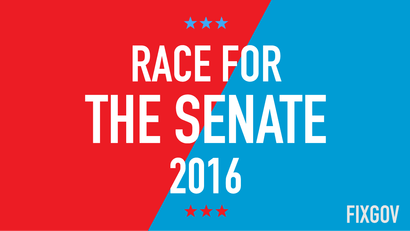
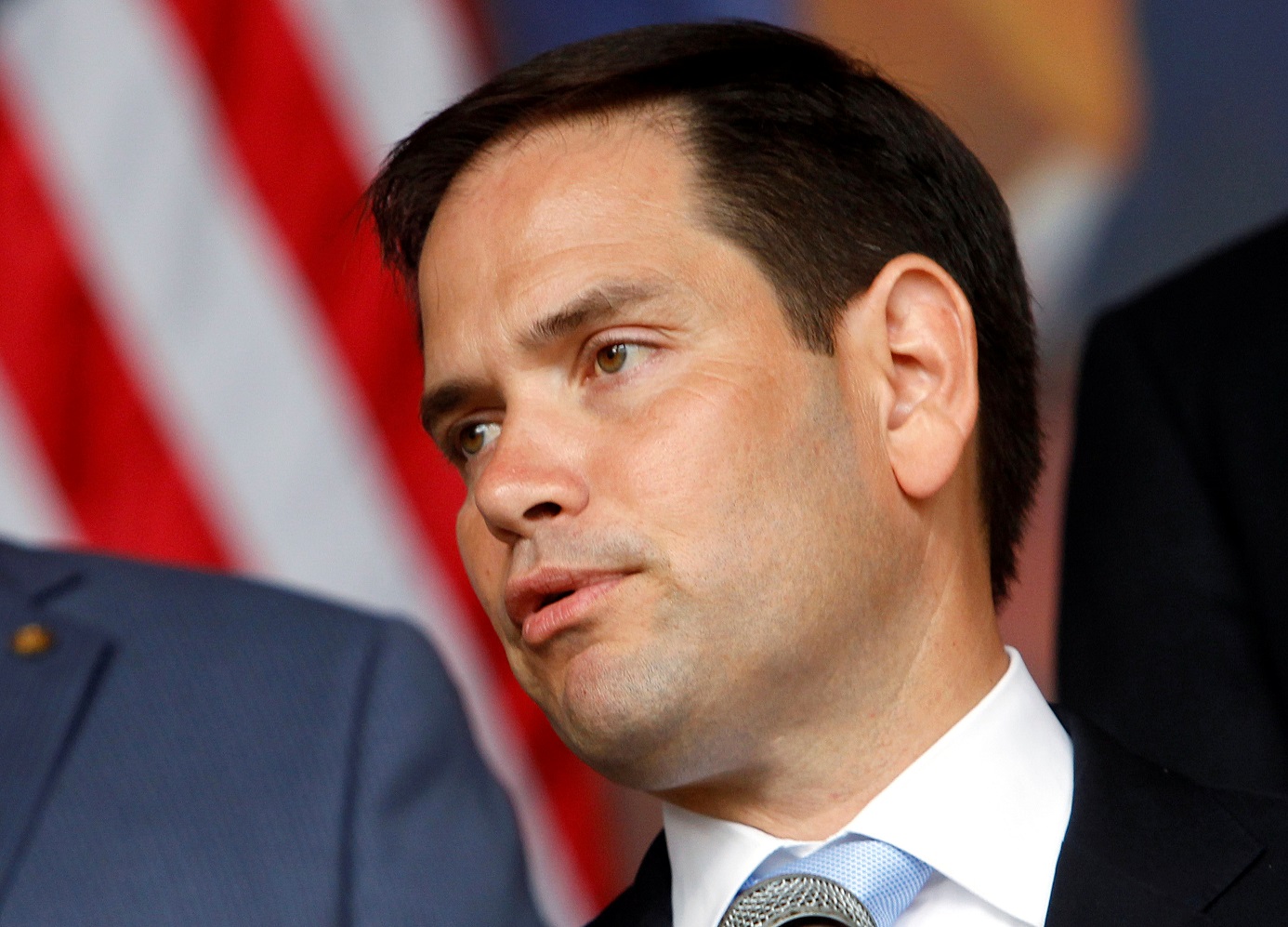
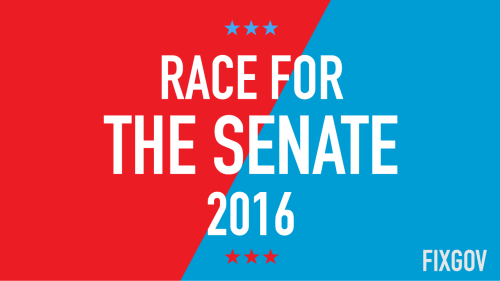
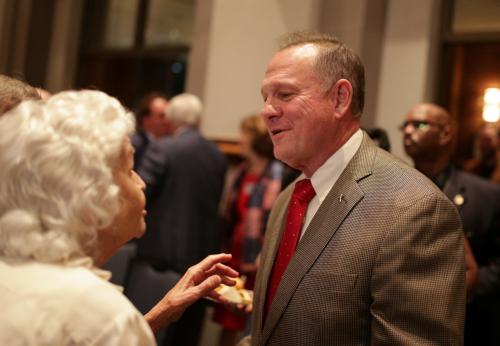
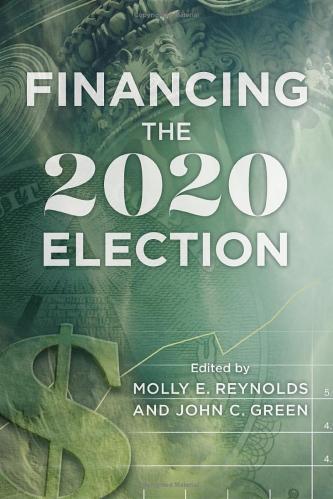
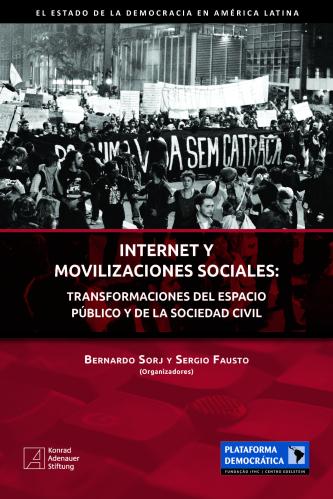
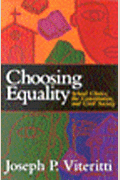



Commentary
Race for the Senate 2016: Key issues in Florida
October 27, 2016